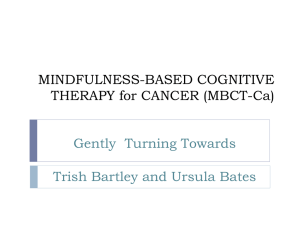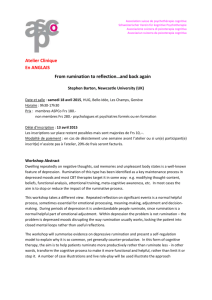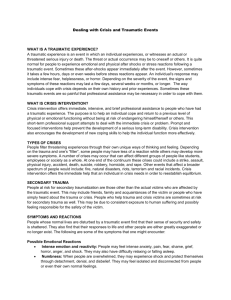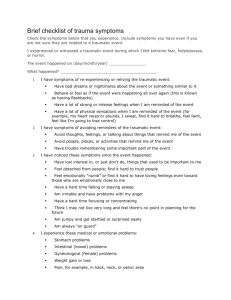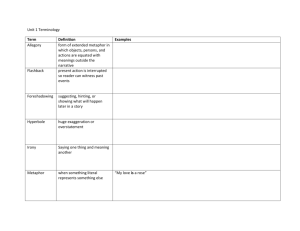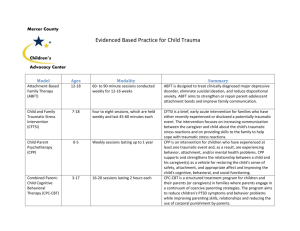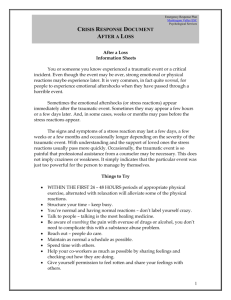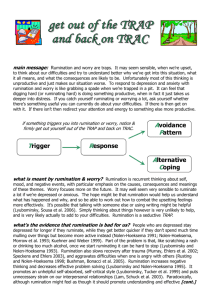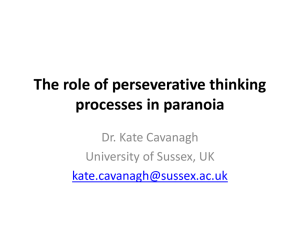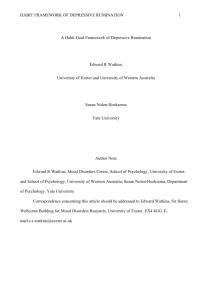Social Psych Summary Articles
advertisement
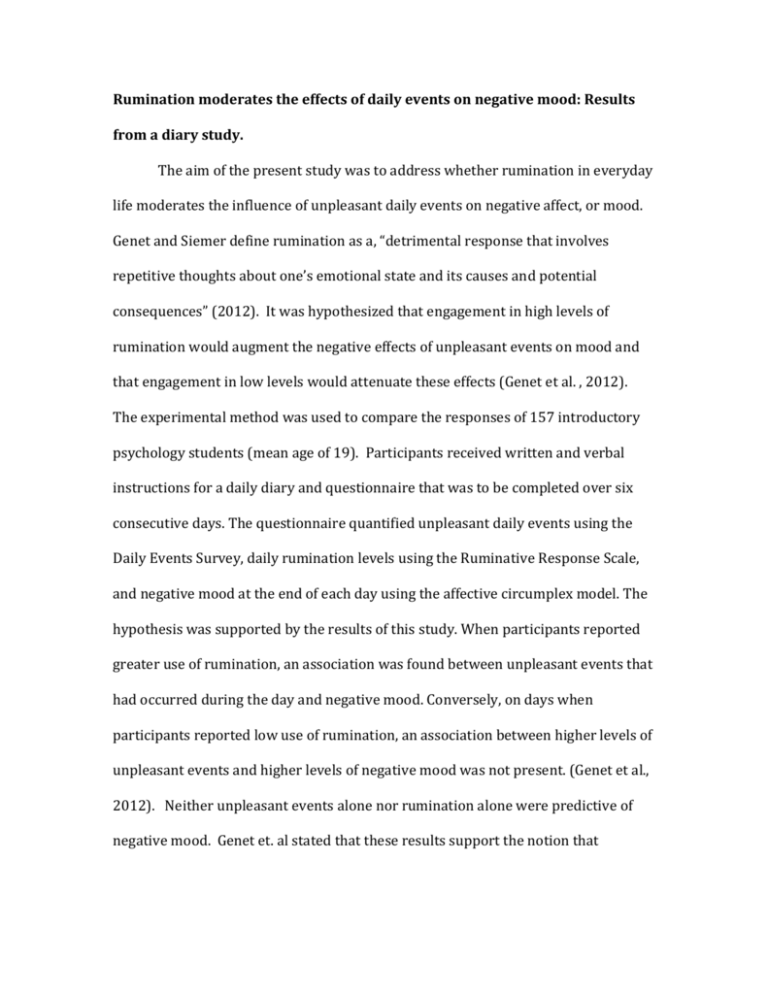
Rumination moderates the effects of daily events on negative mood: Results from a diary study. The aim of the present study was to address whether rumination in everyday life moderates the influence of unpleasant daily events on negative affect, or mood. Genet and Siemer define rumination as a, “detrimental response that involves repetitive thoughts about one’s emotional state and its causes and potential consequences” (2012). It was hypothesized that engagement in high levels of rumination would augment the negative effects of unpleasant events on mood and that engagement in low levels would attenuate these effects (Genet et al. , 2012). The experimental method was used to compare the responses of 157 introductory psychology students (mean age of 19). Participants received written and verbal instructions for a daily diary and questionnaire that was to be completed over six consecutive days. The questionnaire quantified unpleasant daily events using the Daily Events Survey, daily rumination levels using the Ruminative Response Scale, and negative mood at the end of each day using the affective circumplex model. The hypothesis was supported by the results of this study. When participants reported greater use of rumination, an association was found between unpleasant events that had occurred during the day and negative mood. Conversely, on days when participants reported low use of rumination, an association between higher levels of unpleasant events and higher levels of negative mood was not present. (Genet et al., 2012). Neither unpleasant events alone nor rumination alone were predictive of negative mood. Genet et. al stated that these results support the notion that dysfunctional methods of self regulation, like rumination, are major contributors to affective outcomes. Lymbomirsky, Sousa, and Dickenerhoof found that people who wrote or talked about a negative life event experienced improved life satisfaction and health than those who thought about it (2006). This study is important because it specifies the moderating relationship that ruminating has on negative events and moods. It implies that there are superior approaches to coping with such events, such as those explored by Lymbomirsky et al. Genet, J. J., & Siemer, M. (2012). Rumination moderates the effects of daily events on negative mood: Results from a diary study. Emotion, 12(6), 1329-1339. doi:10.1037/a0028070 Writing about the perceived benefits of traumatic events: implications for physical health. A substantial amount of research discusses the health benefits of writing about traumatic life events. The purpose of the present study was to examine whether writing about positive aspects of a traumatic event might be as beneficial as writing about traumatic events while also encouraging positive emotions and insight about the event (King & Miner, 2000). Reponses of 118 undergraduate psychology students between the ages of 18 and 36 were compared. Participants were assigned to one of four conditions within a 2 (writing about trauma vs. not writing about trauma) x2 (writing about perceived benefits vs. not writing about perceived benefits). They were instructed to write for 20 minutes for 3 consecutive days. Participants in the trauma-only condition were required to write about the most traumatic event in their lives. Those in the perceivedbenefits-only condition thought of the most traumatic event in their lives before writing only of its positive benefits. Participants in the trauma + benefits condition wrote about the trauma for the first 10 minutes and then only the positive aspects of the trauma for the last 10 minutes. The no trauma-no perceived benefits condition wrote about unrelated control topics. The writing task was followed by measures of mood and consent to access health records for the three to five months period after writing. A computerized wordcount system analyzed the essays for “emotional content and cognitive insight words” (King et al., 2000). As predicted, the essays written by the perceived-benefits group displayed more positive emotion and cognitive insight into the traumas discussed. The prediction that participants of the perceived-benefits group would find their topic less upsetting, less emotional, and less difficult than the traumatic topic to write about was also supported. The prediction that individuals in the trauma-only condition and the trauma+perceived benefits condition would experience physical health benefits of writing was only partially supported. It was participants in the trauma-only and perceivedbenefits-only conditions that showed the most long-lasting benefits. As predicted, the control group showed no benefits. This experiment is relevant because it provides thorough backing to the Lymbomirsky study. It is a detailed analysis of coping techniques that involve writing. The results of this study indicate that writing positively about a negative life event could be a way to attain the benefits of writing without having the psychological cost of reliving the event (King et al., 2000). King, L, A. & Miner, K, N. (2000) Writing about the perceived benefits of traumatic events: Implications for physical health. Personality and Social Psychology Bulletin. 26(2). 220-230. doi:10.1177/0146167200264008
